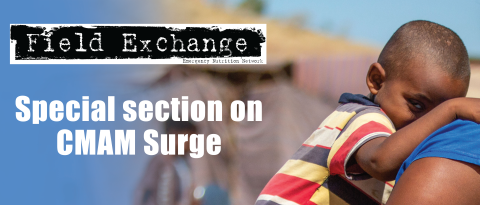Can children catch up from the consequences of undernourishment?
Research snapshot1
This review of the literature examines the possibility of recovery from undernutrition in early life in terms of linear growth, developmental epigenetics and child development. In this study, four criteria must be met to claim catch-up growth: a growth inhibiting condition is required (criterion 1) which causes a reduction in linear growth velocity (criterion 2). This period of growth inhibition is followed by alleviation of or compensation for the inhibiting condition (criterion 3) which subsequently leads to higher-than-normal velocity (criterion 4).
Identifying catch-up growth therefore requires looking at absolute height velocity, i.e., the change in height in cm with age, compared against the growth standard for a given age and sex. The common use of height-for-age z-scores (HAZs), sometimes referred to as “relative catch-up growth”, is incorrect. Studies examining catch-up growth using observational data or methods that do not cover the four criteria stipulated in this study are deemed by the authors as inaccurate and likely counterproductive. Because recovery from linear growth retardation does not automatically lead to improved neurocognitive outcomes, the literature remains unclear as to whether children can actually recover from the broader consequences of undernutrition even when they recover from linear growth retardation.
The review of 11 adoption studies suggests that catch-up growth is biologically possible, even after 24 months of age, when children’s home environments are dramatically improved. Most interventions in low- and middle-income countries, however, do not achieve these dramatic improvements in conditions and therefore do not offer the conditions for full catch-up growth. The effects of undernourishment early in life were found to be profound and irreversible across the three domains reviewed: linear growth, developmental epigenetics and child development.
The reviewed evidence confirmed the importance of ensuring adequate nutrition, health and responsive care from before conception and throughout childhood rather than attempting to correct consequences of undernutrition or to prove that its consequences can be corrected.
Subscribe freely to receive Field Exchange content to your mailbox or front door.
Endnotes
1 Jef L Leroy, Edward A Frongillo, Pragya Dewan, Maureen M Black, Robert A Waterland, Can Children Catch up from the Consequences of Undernourishment? Evidence from Child Linear Growth, Developmental Epigenetics, and Brain and Neurocognitive Development, Advances in Nutrition, Volume 11, Issue 4, July 2020, Pages 1032–1041, https://doi.org/10.1093/advances/nmaa020


